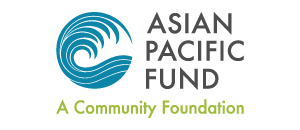Frantic to Flee
Darice Wong, 9th Grade
A person can detest their own cultural background at the same time that the people around them are so deeply fascinated by it. How peculiar and perplexing! And yet, this was the reality that I grew up with; whereas I tried to escape my heritage, others sought entrance to it.
I’m certain that I am not the only one who has experienced this. Our country is composed of so many distinct, unique backgrounds that underrepresentation runs rampant, making it too easy to feel alone and irrelevant. Simultaneously, the fascination of others in your heritage manages to achieve the same effect, by using culture to label and single you out. The combination of both can cause your culture to become a burden that you want to cast off in order to transform into what is considered the norm—the majority. Because that was what I, as a child, believed was the only way that I could stop feeling so alienated, I began to actively reject that aspect of my identity. After all, it seemed as though my Asian heritage could not help but conflict with my American upbringing.
Perhaps I would still feel the weight of such worries if it weren’t for a vital encounter. Just last year, I met another Taiwanese girl my age. As we talked about the duality of our identities, I realized that I had never been able to share such specific parallels with another person. She was the first friend with whom I could discuss the cultural aspects of our lives. Finally, there was someone who understood this other side of me; it felt as though we shared a precious, personal secret I could take pride in.
Our connection had done more than provide companionship. It allowed me to find dignity and ownership in my culture—sentiments previously foreign to me. The gradual acceptance of my heritage also made me realize that I did not have to separate my cultural identities; rather, they could complement each other in a unique, empowering way.
To me, a gold medal is symbolic of the triumph of overcoming one’s struggle. It represents the striking, shimmering individuality one can obtain. This is why I would choose to give her the gold medal, engraved with a pair of feathers—because with her help, my culture was no longer a burden. It became wings instead, lifting me towards my new-found self. To others, her actions may seem trivial; but all I see is a victory of a friendship. She is a champion in my life.
Minorities are still palpably struggling against underrepresentation within communities and media, surrounding and affecting us in every part of our lives. I have always felt that the most important thing that can be done for such youth is to show this: You are not alone. You matter. You are here.
I am indebted to my friend for showing me this. I only hope that we can all become leaders who show the same message to future generations, too.

